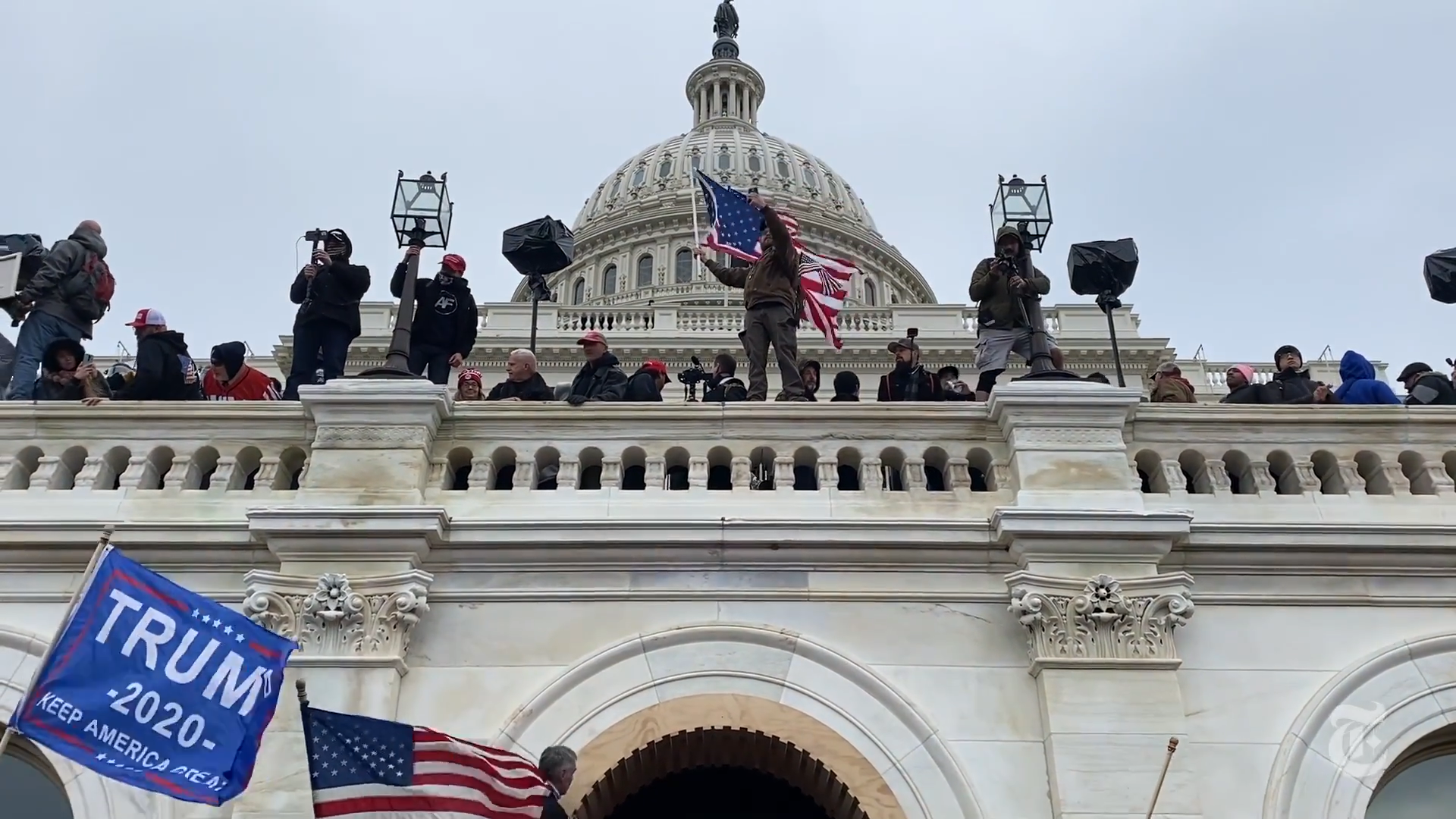Insurrectionists storm the U.S. Capitol in The New York Times DuPont-Columbia award-winning visual investigation, “Day of Rage.”
Listen on Apple Podcasts, Spotify, or Soundcloud
“We understood the magnitude of the event fairly early on and the need to start collecting evidence…That's how we think of this: as evidence, not just cover or B-roll.”
— New York Times Visual Investigations Lead Malachy Browne on the January 6 Capitol riots
After the January 6th attack on the Capitol, the New York Times visual investigation team spent six months organizing the thousands of audio and visual files captured during what co-director Malachy Browne calls “one of the most documented acts of political violence ever.” These crowd-sourced videos and law enforcement recordings, combined with deep reporting, would become the award-winning documentary “Day of Rage,” telling perhaps the definitive story of what happened on January 6th.
Browne’s team made clear the scale of that day’s violence. Their meticulous reporting showed each moment from different angles, captured by security cameras and the rioters themselves. As the team sifted through the myriad evidence and data points, they noticed “patterns emerge… you hear the echoes of the disinformation campaign that was fed to people.” These motifs became a storytelling tool to “show the totality of what happened.”
The conversation with Co-Director Malachy Browne was moderated by duPont-Columbia Awards Director Lisa R. Cohen and Abi Wright, Executive Director of Professional Prizes at Columbia Journalism School. Browne discusses the propaganda leading to the January 6th attack, what viewers see through the rioters’ eyes, and the challenge of organizing the sheer volume of raw audio and video.
You can watch Day of Rage here.

